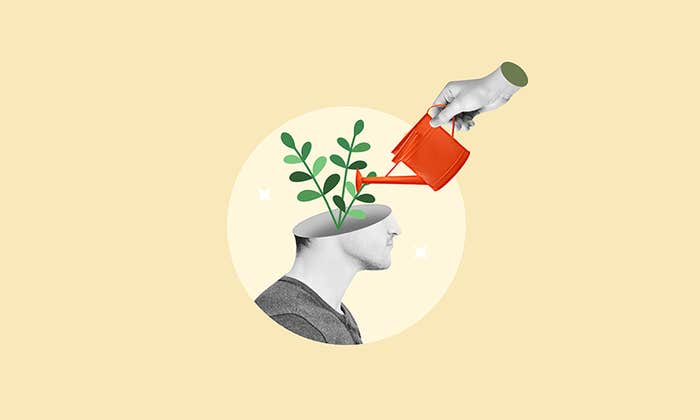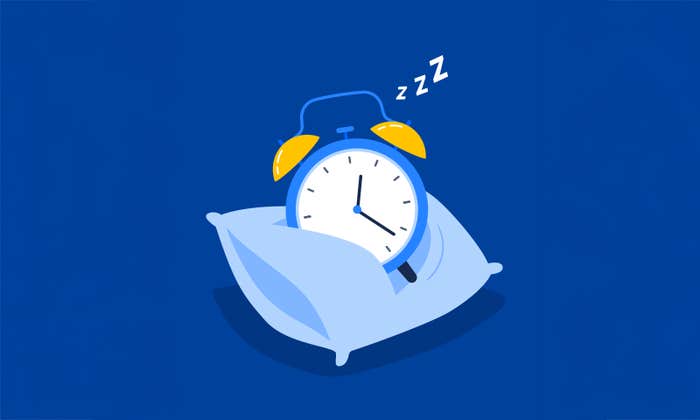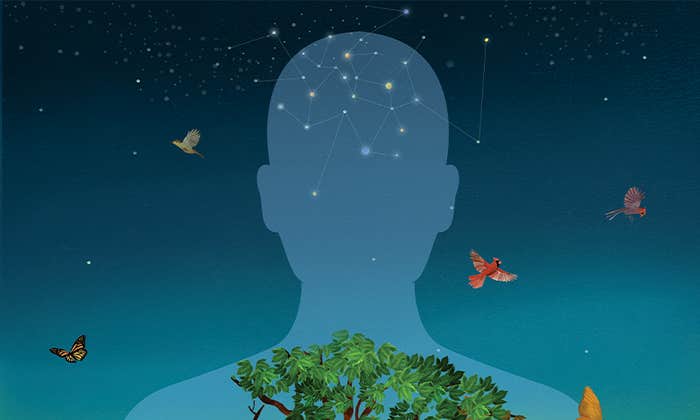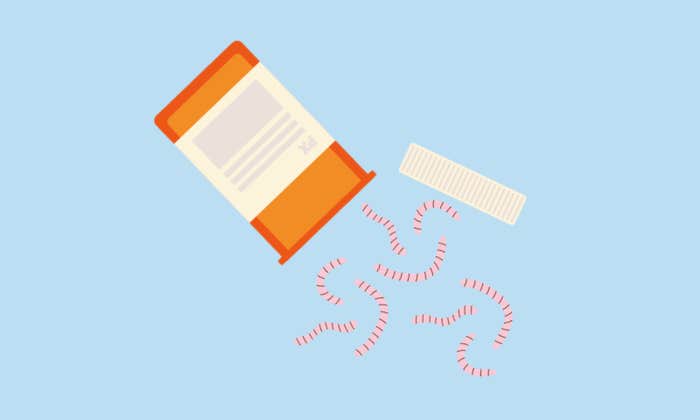Eleven years ago, I sat down across from a man named Edward Espe Brown. I had returned home to Texas from a four-month stay at the Tassajara Zen Mountain Center in California, endured a breakup, and was feeling adrift. I told Ed that I was struggling with powerful feelings of sadness and loss. I didn’t know what to do.
I’ve thought often of the conversation we had that afternoon, as the coronavirus pandemic leaves unprecedented uncertainty, anxiety, pain, and fear in its wake. Ed looked down at the table between us, which held two glasses of water, and nodded. His face was impassive, a sort of deep neutral. I waited for what he might tell me. I wanted to know how to deal with these painful emotions. I hoped for some insight that might empower me to overcome them.
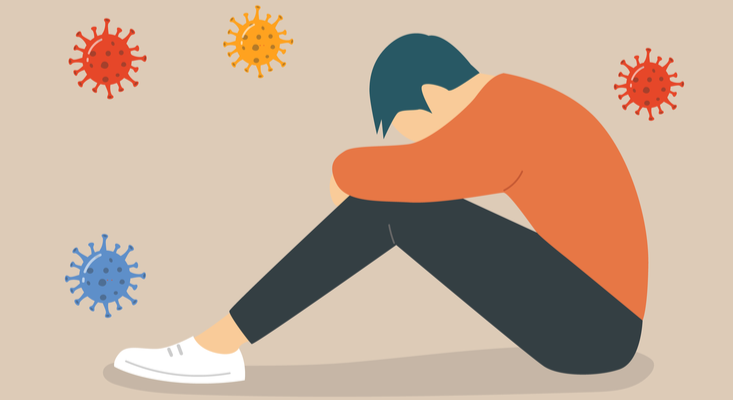
Years before, Ed had also gone to Tassajara. In the summer of 1966 he took a job as a dishwasher at what was then Tassajara Hot Springs. The rustic encampment, tucked deep in the Ventana Wilderness of California’s central coast, was 16 miles from the nearest paved road, and still is. A few months after Ed arrived, it was purchased by the San Francisco Zen Center and transformed into the first Zen monastery outside of Asia. Ed stayed on and became a student. He was promoted from dishwasher to chef. He wrote a bestselling book called The Tassajara Bread Book. He became a renowned Zen priest and teacher.
Ed reached for one of the water glasses between us. He picked it up slowly, gently. A sip before dispensing some wisdom, I thought. But before the glass reached his lips, he set it down again. Slowly, gently.
He reached for the glass again. He lifted it and held it up between us. He looked up from the glass to me. “When you lift the glass, lift it with your whole heart and mind,” he said. “Lift it slowly, and gently.” Then he brought the glass to his lips and drank.
What if we took these moments as an opportunity to practice mindfulness, rather than reminders of what has gone wrong?
What did a glass of water have to do with anything?
I remembered something that the founding abbot of Tassajara, Shunryu Suzuki Roshi, had reportedly told Ed when he was struggling to manage the stress of the kitchen. “When you wash the rice, wash the rice. When you cut the carrots, cut the carrots. When you stir the soup, stir the soup,” Suzuki said.
Instead of worrying about the future while cutting the carrots, or dwelling on an argument while stirring the soup, Suzuki meant that we should pay attention to whatever we are doing right now. Focusing your full attention as you wash the rice, instead of allowing the mind to wander far and wide, grounds us in the present. And that sort of grounding, it turns out, can have a profound effect on our thoughts and emotions.
Ed knew there was nothing he could say that would disperse the pain I was experiencing. There was no secret insight. Instead, he demonstrated that something as mundane as lifting a glass could be an opportunity to cultivate mindfulness, the practice of paying close attention to the nature of experience. And through that practice, returned to over and again, I might find some relief from those feelings of sadness and loss.
The impact of COVID-19 on our mental health has been profound. In the ER, where I work as a physician, I’ve seen a surge of patients struggling with overwhelming anxiety and depression. Even those presenting with a physical complaint have experienced incredible hardship and loss. One patient presenting with chest pain told me that he had lost more than a dozen family members to the disease.
Studies suggest that the problem extends far beyond my own experience. According to a CDC study conducted last summer, symptoms of anxiety have increased threefold since 2019.1 Symptoms of depression have increased fourfold. An earlier survey, conducted in April, found that symptoms of serious psychological distress were three times more common than in 2018.2 In September, a survey also found that symptoms of depression were three times more common in March and April than in years past.3 Symptoms of severe depression were seven times more common. Young adults in particular are struggling. One survey found that more than 60 percent were suffering from symptoms of anxiety or depression, and a stunning 25 percent reported that they had contemplated suicide in the last 30 days.1 Mental health researchers have called this wave of depression and anxiety a “second pandemic.”
It’s hard to escape the coronavirus’s shadow. Maybe that’s part of why it’s been so devastating for our mental health. The virus has touched everything. People have lost their jobs. The future of the economy is uncertain. Social connection has been disrupted. Politics have become ever more polarized. Some of those already infected have yet to regain their health. Those of us still well ask ourselves if a scratchy throat or a bit of nausea might be the first sign. We worry whether vaccination will be effective against the new variants. And, of course, there are so many who have been lost.
All of us wonder when things will be normal again, or if they ever will.
Research has begun to unravel how mindfulness can change the body and brain in beneficial ways.
It’s difficult to find a reprieve from these anxieties when we’re surrounded by small daily reminders of the virus. Donning a mask before you step into the grocery store. Remembering to keep six feet apart from other shoppers in the checkout line. Resisting the urge to touch your face. Washing your hands again and again.
What if we took each of these moments as an opportunity to practice mindfulness, rather than reminders of what has gone wrong? Could it help us through these extraordinary times?
Mindfulness has been central to Buddhist traditions for millennia. Its aim is the cessation of mental suffering, which seems profoundly useful, especially in the time of COVID. But for many, the religious trappings of Buddhist practice can be a barrier. I remember struggling with the dark robes, chanting, and incense when I first arrived at Tassajara.
In 1979, an American biologist and student of Zen named Jon Kabat-Zinn began developing a secular approach to mindfulness at the University of Massachusetts Medical School. He was convinced that the mindfulness training embedded within Zen practice could be enormously valuable to Western patients suffering from chronic illness, depression, and anxiety. Kabat-Zinn articulated an accessible definition of mindfulness and developed a program to teach it. And, being a scientist, he studied it.
Kabat-Zinn defined mindfulness as “paying attention in a particular way: on purpose, in the present moment, and non-judgmentally.”4 The human mind likes to wander, and we’re often not aware of it. We drift into rumination about the future or past. We find ourselves preoccupied with memories or feelings. When these preoccupations involve anxious or difficult thoughts or emotions, it can feel like we have become those thoughts or emotions. It can feel as though we are anxious, rather than simply feeling anxious.
The purpose of mindfulness practice is to notice this tendency of the mind to carry itself away, and to bring attention back to the present. But the noticing, by itself, isn’t everything. It’s also important to withhold judgment of what you observe. It’s easy to rebuke yourself when you realize you’ve been perseverating on a rude encounter on the subway for hours. But it isn’t a constructive response. Instead, notice but don’t judge. Realize that the perseveration is a natural human inclination, and that it will subside. Oftentimes, this realization itself introduces enough mental distance from the cycle of rumination to break it, and allow you to move on.
In the program Kabat-Zinn created to teach mindfulness, called Mindfulness Based Stress Reduction (MBSR), he described the practice this way:
Bring your attention to the primary object of observation. Be aware of it from moment to moment. When you notice that the mind has drifted into thought, reverie, and so forth, bring it back to awareness of the present moment, to the observation of what is dominant in that moment.
When a strong feeling or emotion arises (i.e., a state of fear, pain, anger, anxiety), direct your attention to the feeling as it occurs and just be with it, observing it.
Distinguish between observation of the experience itself and thoughts and interpretations of the experience. Observe the thinking process itself. Avoid becoming involved in the content of individual thoughts. Observe them as impermanent mind events and not necessarily accurate. Treat all thoughts as equal in value and neither pursue them nor reject them.
In the early 1980s, Kabat-Zinn used these instructions, in conjunction with breathing and yoga techniques and weekly classroom sessions, to study the usefulness of mindfulness in managing chronic pain.5 It was one of the first attempts to evaluate the practice scientifically, and the results were striking. Fifty-one patients with chronic pain completed the eight week program. More than half of the group reported improvement in their pain by 30 percent, with some reporting an improvement of 50 percent. The researchers also found that symptoms of depression and anxiety improved by 60 percent, on average. It was a small study with bundled interventions and no control group, but it was enough to open the door to further inquiry.
Now, nearly 40 years later, thousands of studies have been published on the effects of mindfulness on everything from blood pressure and rheumatoid arthritis to depression and insomnia. A steady signal has emerged from studies evaluating the effect of mindfulness on mental health in particular.
Washing your hands can be an opening, an invitation to practice, a reminder.
According to a meta-analysis of 96 studies of Kabat-Zinn’s MBSR, one person in five had significant improvement in their mental health,6 which is similar to SSRIs in the treatment of depression and anxiety.7 A 2018 analysis of 18 randomized, controlled studies of MBSR for depression in adolescents found a substantial positive effect in all but one.8 Another analysis of 14 randomized, controlled studies, published in July 2020, found that MBSR reduced symptoms of anxiety among adolescents by an average of 15 percent.9 A small study published earlier this year is especially relevant to me, as an emergency physician—an app-based mindfulness intervention among 34 doctors decreased symptoms of anxiety by nearly 50 percent and emotional exhaustion by 20 percent, although there was no control group.10
It seems surprising that the simple act of paying attention in a particular way could have a significant impact on mental and emotional suffering. But research has begun to unravel how mindfulness can change the body and brain in beneficial ways.
A 2017 meta-analysis of 45 randomized, controlled studies found that mindfulness practice consistently improved physiologic markers of stress, like blood pressure, resting heart rate, cortisol, and inflammation.11 Imaging studies have provided important insight into how mindfulness affects the brain. A 2016 review evaluated 30 studies that used MRI to measure changes in brain structure and function associated with mindfulness practice.12 It found that several regions were consistently affected—the insula, which helps control the sympathetic nervous system; the cingulate cortex, which is involved in emotional processing; the hippocampus, which facilitates learning; and the amygdala, which regulates fear. The default mode network, a system of interconnected brain regions that has also been implicated in depression and anxiety, may also be affected.13 It is responsible for rumination, among other things, and some studies have found that mindfulness practice can modulate the network in a beneficial way.
It’s not hard to see how aberrant activity in these regions could contribute to symptoms of depression and anxiety. An overactive default mode network can predispose to rumination, while aberrant activity in the insula and amygdala can lead to a state of heightened sensitivity and fearfulness. Changes in the cingulate cortex and hippocampus, on the other hand, could allow us to learn how to modulate negative feelings and emotions.
Mindfulness practice isn’t a panacea, and it’s certainly no replacement for medical care if you’re experiencing serious depression or anxiety. But it can be an adjunct, a potentially powerful one, and it’s open to anyone willing to try. Most studies investigating the effect of mindfulness practice on mental health have used structured programs with in-person training, like Kabat-Zinn’s eight week MBSR program. Programs like these can provide a firm and formal foundation for mindfulness practice, and some may now be available virtually.
But informal opportunities for practice, like washing your hands or observing social distancing, can be important too. They can be an opening, an invitation to practice, a reminder. Kabat-Zinn has written that the practice of mindfulness takes “a variety of forms,” from formal activities like sitting meditation to “informal practices that are aimed at cultivating a continuity of awareness in all activities of daily living.”14 These moments can be helpful reminders to return to the practice of paying attention in a particular way, without judgment.
The next time you reach up to pull a mask over your face, you might remember what Ed said to me those years ago, as he raised a glass of water toward me:
“Lift it slowly, gently. Lift it with your whole heart and mind.”
Clayton Dalton is a Harvard-trained emergency physician. He lives and works in New Mexico.
References
1. Czeisler, M.É., et al. Mental health, substance use, and suicidal ideation durving the COVID-19 pandemic—United States, June 24-30, 2020. Morbidity and Mortality Weekly Report 69, 1049-1057 (2020).
2. McGinty, E.E., Presskreischer, R., Han, H., & Barry, C.L. Psychological distress and loneliness reported by US adults in 2018 and April 2020. JAMA 324, 93-94 (2020).
3. Ettman, C.K. Prevalence of depression symptoms in adults before and during the COVID-19 pandemic. JAMA Network Open 3, e2019686 (2020).
4. Shapiro, S.L., Carlson, L.E., Astin, J.A., & Freedman, B. Mechanisms of mindfulness. Journal of Clinical Psychology 62, 373-386 (2006).
5. Kabat-Zinn, J. An outpatient program in behavioral medicine for chronic pain patients based on the practice based on the practice of mindfulness meditation: Theoretical considerations and preliminary results. General Hospital Psychiatry 4, 33-47 (1982).
6. de Vibe, M., et al. Mindfulness-based stress reduction (MBSR) for improving health, quality of life and social functioning in adults: A systematic review and meta-analysis. Campbell Systematic Reviews 12 (2017).
7. Cochrane Briefs. Effectiveness of antidepressants compared with placebo for depression in primary care. American Family Physician 82, 42 (2010).
8. Chi, X., Bo, A., Liu, T., Zhang, P., & Chi, I. Effects of mindfulness-based stress reduction on depression in adolescents and young adults: A systematic review and meta-analysis. Frontiers in Psychology 9, 1034 (2018).
9. Zhou, X., et al. Effects of mindfulness-based stress reduction on anxiety symptoms in young people: A systematic review and meta-analysis. Psychiatry Research 289, 113002 (2020).
10. Roy, A. Druker, S., Hoge, E.A., & Brewer, J.A. Physician anxiety and burnout: Symptom correlates and a prospective pilot study of app-delivered mindfulness training. JMIR mHealth and uHealth 8, e15608 (2020).
11. Pascoe, M.C., Thompson, D.R., Jenkins, Z.M., & Ski, C.F. Mindfulness mediates the physiological markers of stress: Systematic review and meta-analysis. Journal of Psychiatry Research 95, 156-178 (2017).
12. Gotink, R.A., Meijboom, R., Vernooij, M.W., Smits, M., & Hunink, M. 8-week mindfulness based stress reduction induces brain changes similar to traditional long-term meditation practice—A systematic review. Brain and Cognition 108, 32-41 (2016).
13. Coutinho, J.F., et al. Default mode network dissociation in depressive and anxiety states. Brain Imaging and Behavior 10, 147-157 (2016).
14. Kabat-Zinn, J. Mindfulness-based interventions in context: Past, present, and future. Clinical Psychology: Science and Practice 10, 144-156 (2003).
Lead image: Sergii Rudiuk





















